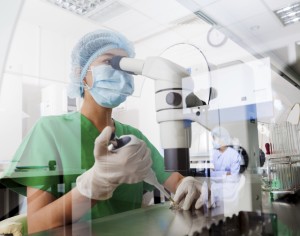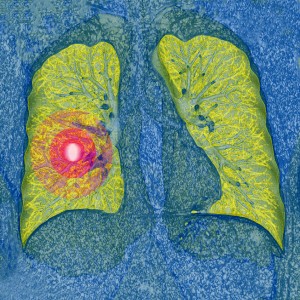Last week we paused our special series of blogs on our 2016 Lung Cancer, Ten Secrets of lung Cancer, to bring you an important breaking story on recent cancer research. 
Today, we resume our series on the Ten Secrets of Lung Cancer, which encompasses ten essentials for understanding the disease. So, you might want to re-read our Part I, linked above.
6. The Truth about Screening: Screening for Lung Cancer is very helpful. “The USPSTF concluded with moderate certainty that lung cancer annual screenings with low-dose CT scans (LDCT) can prevent a substantial number of lung-cancer-related deaths among people who are at high risk for lung cancer.”
Florida Lung, Asthma, and Sleep Specialists: The High Risk For Lung Cancer Group–
If you belong to the high risk group described below, we believe you should be screened for lung cancer in the hope of early diagnosis:
The Group: Current or former smokers who quit within the past 15 years
Plus: And aged 55 to 80
Plus: And you have smoked at least one pack of cigarettes a day for 30 years, or two packs a day for 15 years.
7. Screening is not to be Taken Lightly: “Screening for lung cancer has risks as well as benefits. According to the Centers for Disease Control and Prevention (CDC),
A. False-positive results: As the name implies, the test results prove you have a problem, but in reality, you are fine. When this happens, stress, tests and surgeries are multiplied. Doctors attempt to avoid this at all costs, but sometimes such results happen.
B. Overdiagnosis: The screening tests can discover some kinds of cancers that would never have hurt you. However, you would endure unnecessary treatments before this was ascertained.
C. Cancer: The most horrifying possibility of the 3 risks for the screening is that “repeated LDCT scans can cause cancer in otherwise healthy people.”
This is why FLASS doctors are very cautious about recommending scans, and take utmost care in administering them and in reviewing their results.
8. To Screen or Not To Screen? Screening should not be chosen without your doctor’s consultation. “Ask your doctor if you should be screened. If you are at high risk for lung cancer, talk to your doctor about whether you should be screened for lung cancer.”
Once you have discussed it with your doctor, he or she can refer you to a high-quality treatment facility.
We also do not believe you should be screened after age 81 or if you already have other health issues that would make lung cancer treatment unbearable and highly detrimental to your quality of life.
9. New Treatments Arriving Soon! Stunning research and treatment development is happening in the field early-stage lung cancer.
A prime example is that radiation oncologists are now using proton therapy.This delicate radiation can blast a specifically targeted tumor “with remarkable precision so that surrounding healthy tissue isn’t affected.”
The proton therapy radiation oncologists rightly declare, “We pioneered the innovative, extremely precise form of proton therapy known as pencil beam scanning, and our center is part of MD Anderson Cancer Center, which has been ranked one of the nation’s top two hospitals for cancer care by U.S. News & World Report every year since 1990.” You can discover more about proton therapy at this online resource.
Did you know that only about 15 centers around the United States currently offer proton therapy? In addition to Anderson, Memorial Sloan Kettering Cancer Center in New York City is another institution to offer it, and soon there will be many more.
10. First and Foremost: You must be accurately diagnosed with lung cancer to discover the best course of action for your treatment. Lung Cancer treatments are divided according to the lung cancer stage of the patient. Knowing the type of lung cancer you have and the stage into which that lung cancer has progressed provides the most basic groundwork for developing your treatment plan.
 A Valentine for Our Friends and Patients!
A Valentine for Our Friends and Patients!
It’s that time of year when we see hearts for Valentines, and when we hear of many heart related charity events. Even as you increase your awareness of heart disease, we hope you disease will also become more aware of the role of your lungs in maintaining your health.
With a healthy regime of physical activity, you can do good things for both your heart and your lungs.
As we have said when we have wished you a Happy Valentine in previous years, you might wear red in honor of Valentine’s Day or in honor of heart disease awareness, but FLASS knows that in your heart, you are wearing it for your lungs, too!

